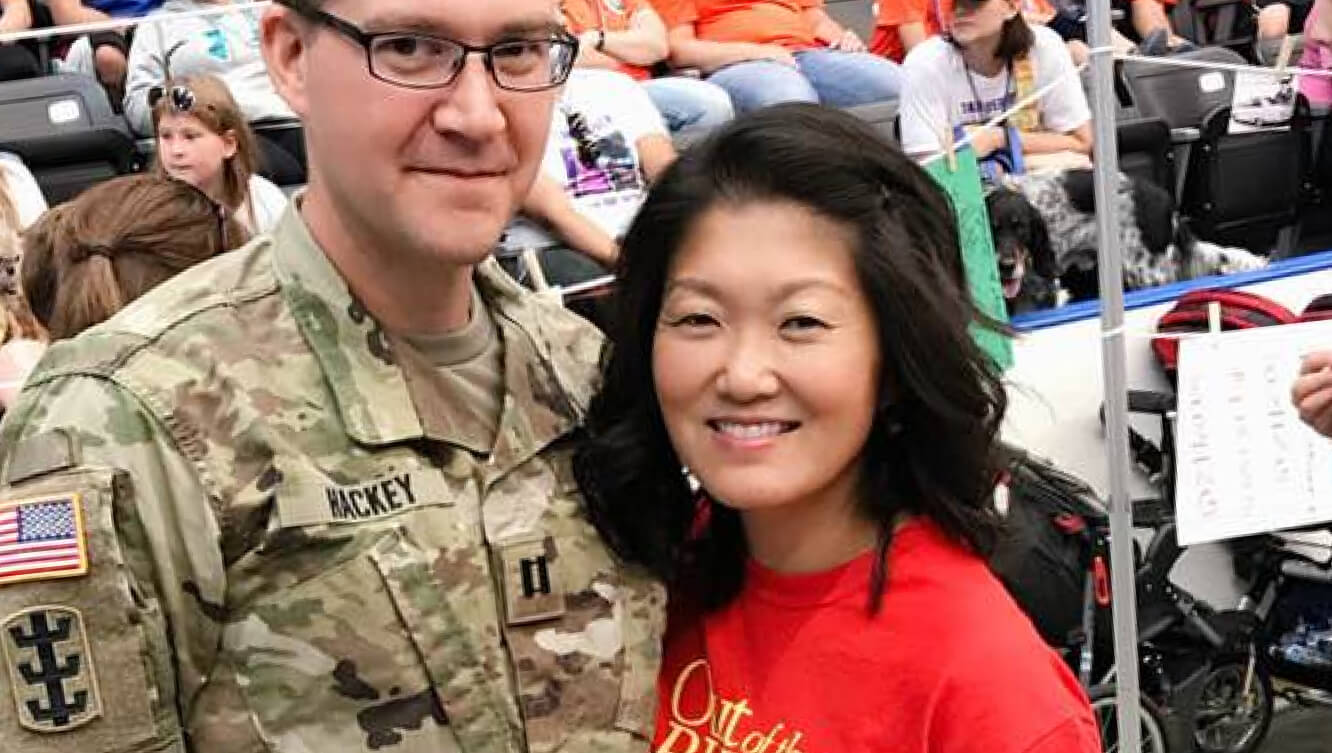Volunteer SpotlightSarah Dixon-HackeyNorth Dakota Chapter

The first time Sarah Dixon-Hackey heard about AFSP was when she attended a Walk to support a coworker who had lost her sister to suicide. But Sarah had lived with anxiety, depression, and thoughts of suicide since she was 12, and attempted to take her life soon after graduating college. It was years after that first Walk that Sarah reconnected with her colleague’s family, who had founded an AFSP chapter in their area after their loss. Inspired by their dedication, Sarah began volunteering by helping to coordinate Walks and becoming the North Dakota Chapter’s Social Media Ambassador.
But after working with a colleague involved with public health and realizing the power of advocacy to create impact through public policy, she shifted her focus, becoming lead Volunteer Advocate for the chapter. Recently, she has been leading the chapter’s efforts in support of the 988 Suicide & Crisis Lifeline.
It is our right and our responsibility to make sure our public officials are educated on suicide prevention issues.
“Advocacy is really about education. Our representatives are given a staggering number of issues to vote on during sessions – it is next to impossible for them to be fully knowledgeable on all of them without external input. As constituents, it’s our right and our responsibility to make sure our public officials at the federal, state, and local level are educated on suicide prevention issues such as equitable access to healthcare, robust mental health support services in K-12 schools, and bipartisan support of 988 funding. We want them to know the real impact of their decisions.
Similar to 911, the new three-digit 988 number for the Suicide & Crisis Lifeline was implemented to be easy to remember, so that people can recall and dial it in times of emergency. While 988 has been successfully launched, it’s important for people to understand that we anticipate exponential growth in usage as the public becomes more aware of this service. This means an ongoing source of funding is necessary to keep it staffed and running, and keep pace with its growth. A big issue is that there is a lack of understanding that it is more than just a hotline — it’s really a vision for a transformed behavioral health crisis system, so that individuals experiencing a mental health, suicidal, or substance use crisis have someone to call, someone to respond to them, and somewhere safe to go.
Thanks in part to our efforts, North Dakota was able to pass a two-year, $2M appropriation for 988 implementation, but many other states have not. It’s critical that the public understands that without funding, local call centers may not be able to fully staff their locations. Wait times will be increased — in some cases as long as 20 minutes or more before a live person can answer the phone. With over 80% of calls shown to be effectively de-escalated by Lifeline workers, extended wait times aren’t just inconvenient, they could cost lives.
As we continue to build awareness and understanding of 988, we now have a plan to train other North Dakota advocates so they can bring the information back to their communities. My hope is to build a strong enough understanding that when our next legislative session occurs, our communities will be able to effectively let our State Representatives and Senators know the importance of continued funding for 988. We are also putting together a virtual symposium for North Dakota advocates, with guest presenters working in behavioral health in our state who will help us gain a better understanding of these systems and potential challenges. I felt it was important to bring more local knowledge to the table for advocates in North Dakota, but I also wanted to create more opportunities for volunteers to connect with each other — for them to feel the same kind of inspiration and motivation I felt when I first attended an Out of the Darkness Walk all those years ago.”
